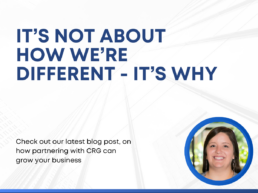There’s many ways to explain your experience on a resume, but how can you explain what you’ve accomplished in your career? Our recruiters discuss the best way to tell your story beyond just listing your responsibilities
Accomplishments vs. Responsibilities
It’s important to list your accomplishments because you want to show that you’re an achiever. It can really separate you from other candidates or other applicants who have the same experience or skill set as you. This is not a time to be humble, you really want to show what you’ve done and what you’ve accomplished. You can tailor your resume to the job you’re applying for with certain keywords and accomplishments that are more applicable to the position. When you are listing responsibilities versus accomplishments; remember that a responsibility is something that you’ve done and an accomplishment is how well you did it.
Don’t Be Humble
Despite what a lot of people may think, being humble in this part of your resume is something that you don’t want to do. You definitely want to let yourself shine and let your best self show. Think anything that has to do with values, or any quantitative data. Maybe even money that was surpassed or metrics that were surpassed. Things of that sort would definitely be known as an accomplishment.
Examples of Accomplishments
When writing accomplishments on your resume, make sure to start with action verbs. Use numbers and quantifiable details to really hone in on the results achieved. The statement should be concise and straight to the point. Here’s some examples:
- Responded to over 30 emails a day to resolve customer issues.
- Boosted sales by over 25% in Q4 2021.
- Balanced an annual budget of over $500,000.
- Improved office efficiency by 15% in implementing a digital filing system.
Looking Back on Your Career
Where you place your achievements is really just dependent on where you are in your career. What we would recommend here at CRG would be to put your achievements or any notable experiences underneath the responsibilities portion of each past job. That way you can really highlight larger achievements that you may have accomplished – career oriented accomplishments. The things that when you’re looking back at your life, you can say “I’ve done this, this and this” so you can really highlight your skills and abilities.


